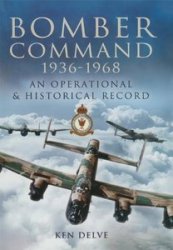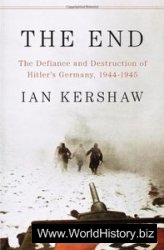Having prepared for a long uphill struggle. Hitler was suddenly provided with another period of chaos, like that which had benefited him at the time of the “Beer Hall Putsch,” as his previous attempt to seize power was now mockingly known.4 The new upheaval arose from the same economic depression that hit the United States in 1929 and went bouncing on through Europe. Austria’s largest bank collapsed, closely followed by one of the big German banks. Factories closed and the number of unemployed rose to 6 million. The government sought emergency powers for drastic financial reforms, but the Reichstag refused and, in September 1930, an election was held.
As might be expected in such conditions, the Communists increased their vote. But the shopkeepers, managers, and ex-officers saw no solution in communism. The middle class, having officered the army and been unfairly blamed for its defeat, having husbanded their savings and been impoverished by inflation, were condemned as “class enemies” by the Communists. Apprehensive of the huge leftwing demonstrations and appalled by unending violence in the streets, they began to believe the Nazi claims that no one else could in fact restore order.
The German government, in what had become known as the Weimar Republic, was not strong enough to ride out the storm. f Its constitution had been drawn up in July 1919 in the small provincial town of Weimar. It provided for a bicameral government, proportional representation, and an elected President. The first holder of this post, Friedrich Ebert, a moderate Socialist, was succeeded in March 1925, in what was to portend the changing mood of the electorate, by Field Marshal von Hindenburg, warrior, nationalist, and monarchist.
Long since returned to Berlin, the Weimar government had few friends. The Monarchists, Nazis, and Communists all declared their contempt for this democratic federal system. The government was blamed for all the consequences of the peace treaty and the crushing reparations demanded by the Allies. The Weimar leaders were identified with the “November criminals” who had sought a cease-fire in 1918, for by now it was claimed that the German Army had never been defeated on the battlefield. Doubters were reminded of the way in which returning soldiers had marched through the Brandenburger Tor in December 1918, to be greeted by Ebert with the words: “I salute you, who return unvanquished from the field of battle.”
Hitler promised a foreign policy that would restore Germany’s rightful place in Europe, and he promised the middle-class moderates a place in that political future.
It was the middle-class recruits who transformed the Nazi Party and gave it roots in local government, in schools, universities, and professions, as well as in industry, commerce, and agriculture. The middle class provided the Nazis with a power base that the Communists could not hope to match. When the September 1930 votes were counted, the 12 Nazi Party seats had become a staggering 107 (while the Communists went from 54 to 77). The bourgeois parties— with the exception of the Catholic Center Party—had all lost votes to the Nazis. So had other right-wing movements. This Nazi landslide had no equal in German political history. After the Social Democrats, the Nazis were now the most powerful party in Germany. It was not only a vote for the Right, it was also a vote against the democratic system which the Nazis promised to destroy. For many it was the writing on the wall, and during the last ten weeks of 1930 about 100,000 people joined the Nazi Party.
Hitler had seen the way in which the German Army had consistently supported the Weimar Republic and decided that the only way to a totalitarian regime of the sort he advocated was with the support of the military. He concentrated his attentions upon the Reichswehr, artfully describing the politically subservient role it would have under a Communist regime (although that was exactly the role he also planned). In promising to rearm Germany in defiance of the peace treaty, he was promising the armed forces a new future. Money spent on modern equipment, including tanks, warplanes, and large battleships forbidden by the treaty, would give them the prestigious role they had enjoyed in the time of the monarchy.
The generals looked uneasily upon the ex-corporal. They would welcome the increase in expenditure and the new equipment, but under no circumstances would they welcome another war. Apprehensive lest required to subordinate their soldiers to the bizarre assortment of roughnecks and opportunists that made up the SA units, they watched Captain Rohm’s growing ambition to be included on the General Staff. By 1930 there were more brownshirts than regular soldiers. Hitler strenuously assured the army that the SA was not intended to replace them, although, to Hitler’s discomfort, that was exactly what Rohm was proclaiming.
Typically, a Gruppenfuhrer of the NSKK (a major general in the Nationalsozialistisches Kraftfahrer Korps, brownshirt motor transport corps) would tell a regular army officer, in a friendly way, that although the Reichswehr would remain, the soldiers must expect brown-shirts to be given choice jobs and high ranks. “That is the recognition of the success of our work.”
Rohm was fond of saying that there was a new style of warfare and condemning the generals for being out of date. Although his instincts were the right ones, Rohm had no idea of how a new style of war might be fought. His theories were limited to the idea that the brownshirt was a new political soldier, freed of the autocratic discipline that characterized the Kaiser’s army. Rohm’s most radical idea about the new sort of army was that Rohm should command it. “I am the new army’s Schamhorst,” he would brag, using the name of the man who had reorganized the Prussian Army after the collapse of 1806. But R5hm was no Schamhorst; he was a noisy, self-indulgent homosexual who not only boasted of his amorous adventures but gave perverts senior jobs in his SA. The head of the SA’s Intelligence Unit was paid a fee to supply Rohm with new boyfriends from the Gisela High School, Munich. Unfaithful partners were the target for assaults by SA patrols.
Hitler knew about Rohm’s scandalous activities but turned a blind eye to them. For the time being, Heinrich Himmler, a prim young
SA man who had not been old enough to see fighting in the war, also overlooked Rohm’s activities. Himmler idolized the swashbuckling, bemedaled Rohm, but he worshiped Hitler even more. In 1929, at the age of twenty-nine, Himmler had taken command of Hitler’s bodyguard units—now called the SS—and in keeping with his boyhood ideas of medieval chivalry, he enforced upon them a puritanical regime that distanced his private army from the brownshirt battalions.
Private armies, even part-time ones, cost a great deal of money. Most of the money—the Party was spending between 70 and 90 million marks a year—came from its large membership, but up to the end of January 1933 about 6 million marks had been donated by industry. Obviously this was only a tiny percentage of the Party income, but Hitler now had to find time to cultivate the industrialists, seeking both money and influence. From now on, the stakes would be large ones.
Nazi rallies became more and more theatrical: massed flags, military bands, fanfares, cannon fire, crowds chanting slogans such as “Germany Awake!” and complex rituals, including the “consecrating” of blood-stained flags, gained enormous audiences for the hard-sell political speeches.
In Germany aviation had progressed rapidly since 1918 and Hitler and his propaganda experts saw the drama of descending from the sky. It was for this as much as for the practical reasons that Hitler used aircraft so much. “Hitler over Germany” was the deliberately equivocal slogan. In 1932 the Nazi leaders flew 23,000 miles on Lufthansa aircraft. By means of its heavily subsidized airline, the Weimar Republic was in fact contributing to the election campaign of its most bitter enemies. Not content with this, the Nazis enrolled Lufthansa chief Erhard Milch as a secret member of the Party and so avoided payments of any airfares.
Air travel increased the importance of Himmler’s SS, for it became necessary to provide Hitler with an escort in each of the towns he visited. Although technically still a part of the SA organization, the SS elite was becoming a powerful force in its own right.
The rallies, speeches, and personal appearances paid off in attracting the workers to the movement. Using proven Communist techniques, the Nazis went into the factories and—even more important during the Depression—down the long lines of unemployed. At the same time there was a deliberate accent on youth. Not content with paying lip service to the importance of young Nazis, the Party gave them senior jobs. Himmler had taken over the SS at the age of twenty-nine. Josef Goebbels was made a Gauleiter (district leader) at the age of twenty-eight. Of the Nazis sitting in the Reichstag, 60 per cent were under forty years old. After the July 1932 Reichstag election the Nazis held 230 seats of the total 608 (Communists got 89 seats). Although still without a majority, the Nazis were now the largest party there. In four years, the Nazis had amassed 13 million votes.
Alarmed by the growing power of the brownshirts, the army leaders, together with the police and other officials, played out a series of war games to examine the task of keeping law and order in the cities against the Communists and Nazis. They concluded that the shortage of motor vehicles' would prevent them concentrating at trouble spots (they assumed that the railway would not be working normally). The Polish Army was building up in the Polish Corridor and along the East Prussian border at this time. Serious disturbances in the German cities might well tempt the Poles into a full-scale attack, which the German Army would also have to deal with.
The Reichswehr’s Planspiel of November 1932 provided important lessons for anyone who cared to note them. The established German Army no longer had the physical power to overcome the uniformed private armies of Left and Right. This weakness was not due to a lack of rifles, machine guns, or artillery, or even to a lack of men, but to a shortage of trucks. The vital role of the truck had already been recognized by some military experts. In England Captain B. H. Liddell Hart greeted the six-wheel truck as a landmark in military evolution.
Germany had become the greatest industrial power in Europe and its army the strongest at a time when manpower, horsepower, and the coal-flred steam engine comprised the foundation of prosperity and might. Germany’s coalfields were immense, its population large and hardworking, but there were no sources of oil at hand. Although only the spearhead of the army would get tanks and armored cars, the whole economy was fast becoming dependent upon motor transport. In spite of captured and controlled oil fields and synthetic fuel production, the fuel supply was to remain a constant problem for Germany.




 World History
World History









